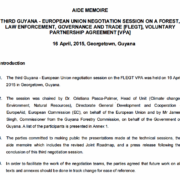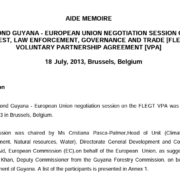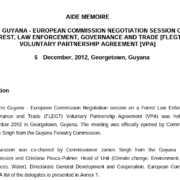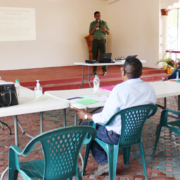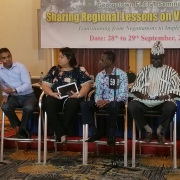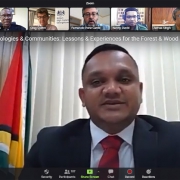Karasabai Consulted on the Guyana-EU FLEGT VPA
On February 9th 2017, the Amerindian Village of Karasabai was consulted on the Guyana-EU FLEGT VPA as part of the National Technical Working Groups’ (NTWG) 2017 round of stakeholder consultation. Thirty one (31) persons were able to partake in the day’s session which included representation from the village of Yamparo. The participants ranged from teachers, Toshao, senior councillors, and to a greater extent; students of the Karasabai secondary school. Given the number of students present, the FLEGT team adjusted its approach of dialogue, and thus conducted a more focused session, fostering discussions relating to the overview of FLEGT and the opportunities it has to offer for the country (at a national level), and the Amerindian people who are (or will become) engaged in the timber industry.
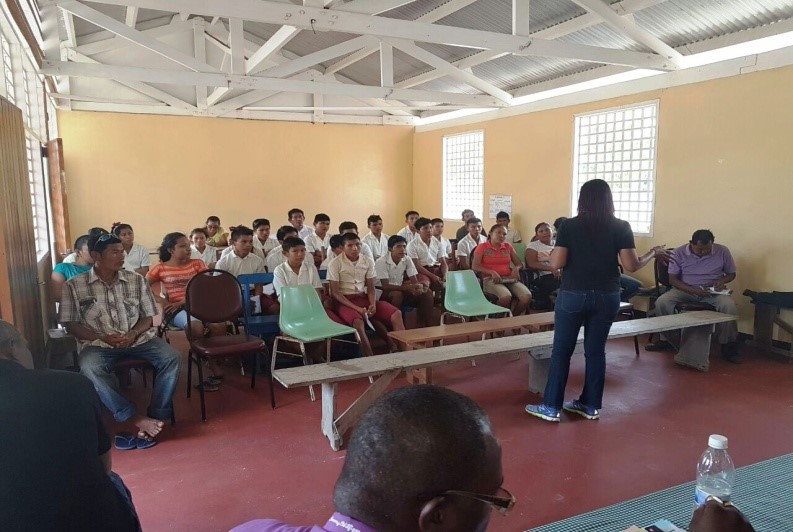
While Karasabai does not do logging on a commercial scale, each requirement for Amerindian villages as outlined in the Legality Definition were discussed. In this way, the team was able to encourage discussions relating to the support they will need in order to meet these requirements should they venture into commercial logging. Based on this discussion, participants were able to identify some key support areas. Areas identified included the need for capacity building in Reduced Impact Logging (RIL), Sustainable Forest Management (SFM), General Forestry Operations and First Aid.
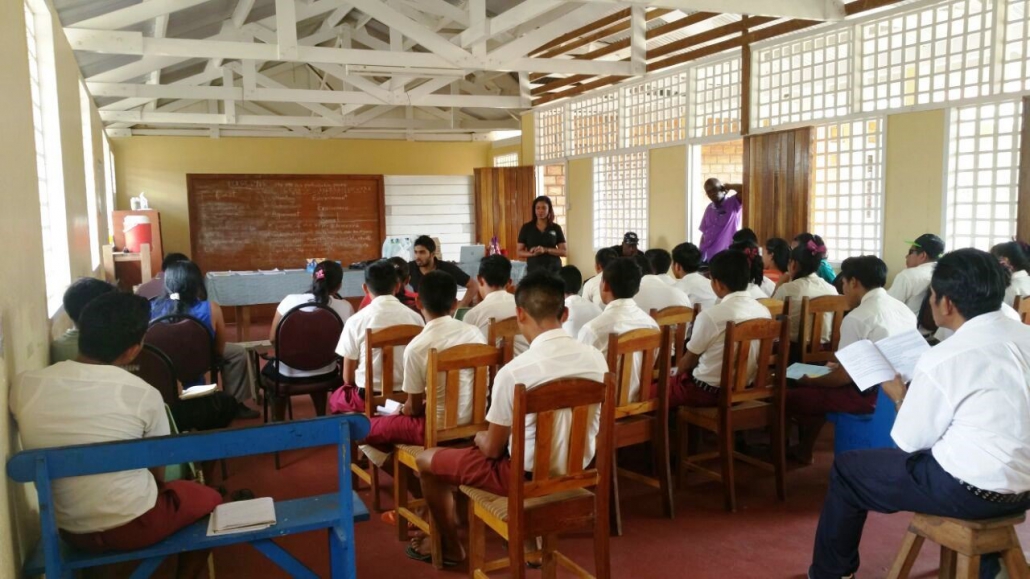
Furthermore, requests were made for awareness sessions on employer-employee rights under the relevant Laws governing Labor and Labor welfare in Guyana, especially those relating to overtime, minimum wage, NIS, Income tax etc. Moreover, Karasabai strongly believes that workshops with the Ministry of Labor, EPA, NIS and GRA are critical in order to improve the compliance of Amerindian Villages with environmental safety rules, tax returns and NIS payments. With regards to the latter, Mr. Leslie Allen (NIS Officer for Region 9) was able to provide a general overview of NIS, its benefits, and the process of registering for NIS. Finally, participants would like to see the inclusion of scholarships so that youths from the various villages can benefit from tertiary education (in forestry) at the Guyana School of Agriculture (GSA), for better job security and better manage their own forest resources.

